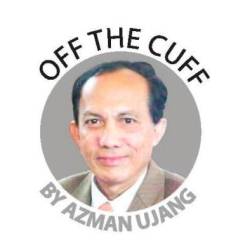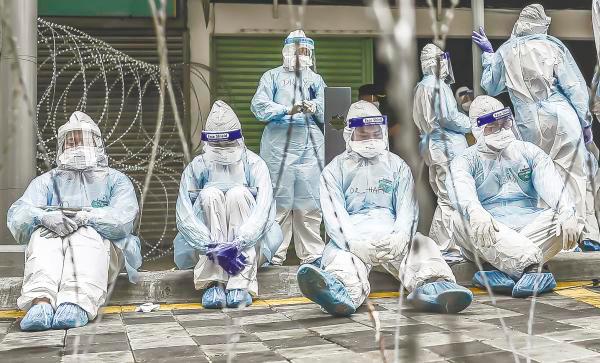UNDERFUNDED, understaffed, underpaid and under-appreciated. These are the four words that the then director-general of health, Tan Sri Dr Noor Hisham Abdullah, chose to describe the nation’s public healthcare service and the thousands of men and women who manage it.
“You are our unsung heroes of the nation,” he said in his New Year message on Facebook in January 2020, just before the world was struck by the Covid-19 pandemic that only subsided three years later.
We cannot imagine the physical and mental pressure they went through during the three-year pandemic period.
Their selfless sacrifices in saving the lives of millions at even greater risks to their health with the Covid virus spreading then, must be rewarded in ways the government knows best how to.
Of all the 1.7 million civil servants that we have, these men and women under the Health Ministry are the ones who work the hardest and the longest hours in a day, well beyond their call of duty, yet we hardly hear them bragging about it.
It is all in a day’s work, with little appreciation except by members of the public who have sought their services either at outpatient clinics or when they are warded at hospitals.
Please do not take the virtually free service, often the fee charged is a mere token of RM1 for registration, for granted without being conscious of what we all can do – in fact, should do – to curb the mind-blowing costs of public sector healthcare.
It is in the interest of all Malaysians to help curb the “exploding” healthcare costs by being more health-conscious and leading a healthy lifestyle.
It is becoming increasingly obvious from statistics that by and large, Malaysians are an unhealthy lot as reflected in the long queues at hospitals and clinics across the nation.
In the 2024 Budget presented in Parliament last year, the Health Ministry was allocated RM41.22 billion, up by 13.5% from RM36.3 billion in 2023.
Even with this huge budget, the second highest after the Education Ministry, it is regarded as underfunded by Noor Hisham.
No less than Datuk Seri Dr Dzulkefly Ahmad, when he was health minister for the first time in 2020 before being reappointed last December, who said the ministry’s expenditure could double to RM80 billion annually at the rate Malaysians are falling sick.
If left unchecked, the costs could become unsustainable, especially in times of economic slowdown.
The latest figures show that eight million patients are seeking treatment at over 140 government hospitals and thousands of clinics annually. The numbers on the nation’s sick list are akin to a time bomb ticking away.
Hospitals are one of the critical public utilities that operate round-the-clock without a break, unlike most others that operate five days a week with weekends off for the staff.
Because of this, maintenance of facilities, especially equipment and machine fatigue and breakdowns are serious issues.
The Star reported on Wednesday that heart surgeries at the Serdang Heart Centre, one of the largest cardiology centres, have ground to a halt once again for over a month after its four non-functional operating theatres underwent major repair works.
The closure affects some 50 patients scheduled for heart surgeries while another 1,000 are on the waiting list. This is yet another example of schedular maintenance that has yet to be institutionalised as a culture in Malaysia as all too often the authorities tend to be reactive instead of being proactive, although maintenance is cheaper than repairs.
Those who have been to hospital wards when visiting friends and relatives can see the over-crowding and the overworked staff to appreciate their sacrifices.
It is more than a sacrifice. Some years ago, I broke my left wrist after falling on a slippery floor and was warded for a few days for an operation at Selayang Hospital. It was an eye-opener for me on the sheer quantity, quality, integrity and sanctity of their selfless service to the nation and the rakyat.
At the end of the day, the onus is on us Malaysians at large to keep the costs of healthcare under control by keeping in mind always that “Prevention is better than cure”.
As the saying goes, eat our food as medicine and not medicine as our food.










